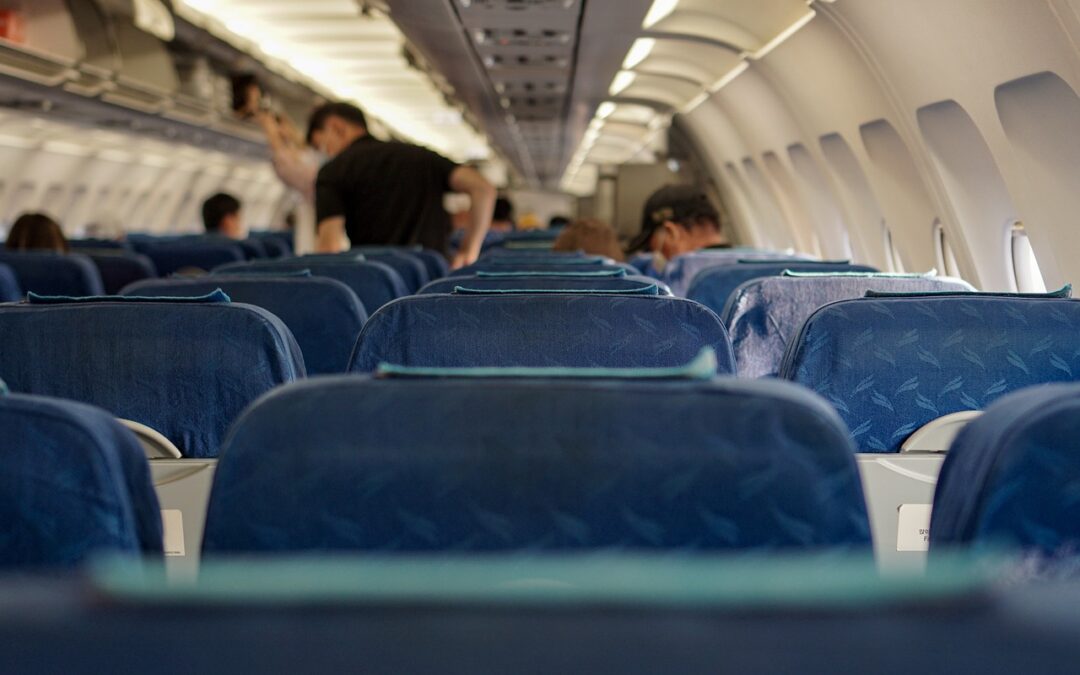The recent surge in unruly passenger incidents on US flights has cast a shadow over the travel industry, raising concerns about passenger safety and the overall flying experience. While the exact causes of this alarming trend are multifaceted, several factors have been identified as contributing to the problem.
Alcohol: A Persistent Trigger
Studies have consistently shown that alcohol consumption remains a primary factor in unruly passenger behavior. The combination of alcohol, the reduced air pressure at cruising altitude, and in some cases, prescription drugs can create a volatile mix, leading to disruptive and even violent incidents.
While airlines have implemented stricter policies on in-flight alcohol service, passengers are increasingly consuming alcohol pre-flight, often at airport bars or lounges. This pre-board intoxication can set the stage for disruptive behavior once passengers are onboard.
Stressful Air Travel: A Breeding Ground for Frustration
The inherent stresses of air travel, particularly in today’s environment of delayed flights, limited legroom, and conflicts over reclining seats, further exacerbates passenger frustration. These stressors can lower inhibitions and heighten tempers, making passengers more susceptible to outbursts.
Enforcing Rules: Striking a Balance
Airline crew members play a crucial role in maintaining order and ensuring a safe and pleasant flight experience. They perform an often thankless job of keeping passengers safe and calm during times of heightened stress, and never deserve to suffer physical or verbal abuse. However, arbitrary rules or inflexible enforcement can aggravate passengers and escalate tensions. The recent incident involving a woman and her dog being removed from a flight due to a whining dog highlights the need for a balanced approach to rule enforcement.
Post-COVID Social Dynamics: A Shift in Attitudes
The pandemic has undoubtedly impacted societal norms and behaviors. Anecdotal evidence suggests a rise in entitlement and a decline in civility, which may be contributing to the increase in unruly passenger incidents. This shift in social dynamics extends beyond air travel and is reflected in other areas of society, such as road rage incidents and violent crimes.
Addressing the Issue: A Multi-Pronged Approach
Tackling the rise of unruly passenger behavior requires a multi-pronged approach that addresses both immediate concerns and underlying causes.
- Strict Enforcement of Alcohol Policies:
Airlines must continue to strictly enforce policies on in-flight alcohol service refrain from serving alcohol to visibly intoxicated passengers, and in obvious cases, refuse boarding to overly intoxicated individuals. Collaboration with airport authorities to curb excessive pre-flight alcohol consumption is also essential.
- Enhancing Passenger Communication:
Clear and consistent communication from airlines regarding flight delays and other disruptions can help manage passenger expectations and reduce frustration.
- Addressing Seat Comfort Issues:
Airlines and the FAA should explore ways to improve seat comfort and reduce conflicts arising from limited legroom and reclining seats.
- Empathetic Rule Enforcement:
Airline crew members should be trained, and periodically retrained to enforce rules empathetically, avoiding arbitrary or inflexible enforcement that can escalate tensions.
- Crewmember self-defense training
The Aviation and Transportation Security Act of 2001 requires cabin crew to be trained in several areas, including “appropriate responses to defend oneself.” In talking with numerous flight attendants and flight crew members, this training is not being addressed at the level it should be. I would like to see a government study to determine the nature and level of self-defense training that is being conducted by the air carriers.
- Addressing Societal Changes:
Addressing the broader societal shift towards entitlement and incivility requires a collective effort that involves individuals, communities, and social institutions.
The rise of unruly passenger behavior is a complex issue that demands a comprehensive approach. By addressing the immediate causes, such as excessive alcohol consumption and stressful air travel conditions, while also acknowledging the broader societal changes, we can work towards a more harmonious and safe travel experience for all.

